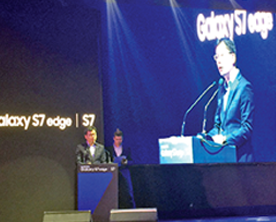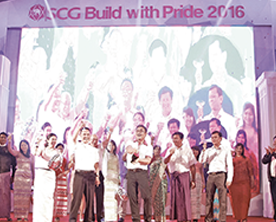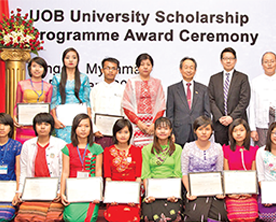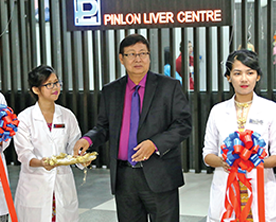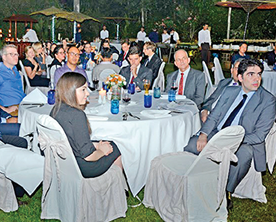T he combined contribution of crops, livestock and poultry to the Gross Domestic Product (GDP) of the country is 31%, reflecting the country’s economy is primarily agriculture-based.
Its main agricultural products are categorized into cereals, oil seeds, beans and pulses, kitchen crops, industrial trees and fruits and vegetables. Rice is exported to China, beans and pulses to India and cattle to Thailand. Before the World War II, Myanmar is the leading rice exporter and given the right direction, it may regain its lost position in the rice market.
The current area devoted to crops is small compared to the total area that can be developed into farms. Cultivating more lands will increase the production output of agriculture sector. This will also help energize the economy is the rural areas where most of the people are located.
Other crops can also be introduced to the country to complement the current array of crops in cultivation. One example is grapes which are now being made into wine in the Shan State. Coffee and cashew are crops suited to the soil and climate of the country, not widely produced in the country, but with good potentials for commercial production.
Problems of the sector
Agriculture sector receive less support from the government because industrialization is the main strategy of the government to achieve development. The push is to move from least develop country (LDC) to middle income country (MIC) category by the year 2030. As government policy makers envision, this can be attained by way of industrialization.
The industrialization strategy calls for the establishment of special economic zones (SEZ) that will host industries and where investors can set up their operations. These SEZ will be augmented by industrial zones that will be establish along three main corridors connecting the country to its more developed neighbors – China, India and Thailand.
As it is now, the agriculture sector is plagued by problems that would take years to settle. First, other than the problem of land titling and ownership, most of the farm holdings in the country are small, resulting to inefficient production which means low profitability for the farmers and low quality of agricultural products. There are no economies of scale at the farm level and there is no effort to consolidate production to a much bigger scale, except for industrial trees like rubber and oil palm.
Second, farming technology is traditional and production is most often than not, geared towards consumption and limited surplus for commercial transactions. This is aggravated by limited extension service that should promote more modern technologies.
Adaptability to natural disasters is another concern that has not yet been addressed. Third, there are limited post-harvest facilities to ensure longer shelf life and quality of the commodities. Facilities like storage, drying, processing and packaging are not available in most production areas to enhance quality that will also improve the price of the commodities. As such, Myanmar agricultural products are sold in its raw form at low price.
Fourth, financing is still far from the reach of ordinary farmers. Myanmar Agricultural Development Bank (MADB) loans may have been distributed but timeliness and adequacy are still issues to be addressed. Processing and release in some areas are not aligned with the planting and harvesting period. The amount is also limited in terms of the actual needs of the farmers. Issues are the same with the loans granted by the Ministry of Cooperatives channelled through village-level cooperatives. Collection rate may reflect low payment default, but the effectiveness of the financing support has still to be determined.
The problems of agricultural producers are aggravated by smuggling and dumping of products through the porous borders of its bigger neighbors, affecting the productivity and profitability of farmers. Poultry products from China is an example of goods routinely smuggled to the country.
Potentials for agri-business
Despite the problems, increasing demand for agricultural products both in the domestic and global market is the trend. Increased demand will result to increased production where more people will be involved. The wide expanse of the country can be developed to accommodate more farms and more crops. Food security is a concern faced by most countries in Asia and with the right strategy, the country can become the food basket of the Southeast Asia, feeding the people of other nations.
But most investors are afraid of the risks related to agricultural production. Few would dare stake their resources in an investment where natural disasters like cyclones, El Nino and climate change are realities to be confronted. The fear of losing money in an endeavour with predictable risks keeps away even the most risk-taking investors. Profit in the sector however is not derived only from production. Looking at the value chain of most agricultural commodities, opportunities abound in value adding and in distribution of agricultural commodities. This is what most investors fail to see and take advantage of. Investors can shy away from production phase which is risky, but activities after harvest offer profitable activities that can bring great returns.
Business in agri-business are present in the supply of farm inputs like seeds, fertilizers and chemicals, sale of machineries and equipment and the servicing of these machineries. Investing in silos, warehouses and other storage and drying facilities will be relevant for aggregating harvest at the farm level. Transport and logistics to move big volume of harvest from the farm to export platforms or processing plants are definitely feasible.
Integration can also be a strategy that will provide more profit to the investors. Controlling all aspects of production from planting to processing and packaging into consumer goods provides opportunity for a business opportunities which is not saturated, yet.
A vibrant agri-business environment will result to agricultural products being moved from the production areas or exported semi-processed. This translates to quality goods and higher prices, employment generation in the rural areas and dollar earnings from exports.
Some crops with high agri-business potentials
Rice is a cereal exported mostly to China, and there is a need to diversity market of this commodity. The country can follow the path of Thailand and Vietnam, global leaders in the rice market. These two countries did not only supported rice farmers but also modernised the drying and milling segment of the industry to package different branded rice products in the global market. Breaching the global rice market for Myanmar will be an easy task if post-harvest activities are upgraded.
The increasing demand for meat gives the livestock and poultry industry opportunity to move towards integration. Raw materials for feeds are grown in the country – soya beans, fish meal, sugar cane, etc. The potentials for setting up a feed milling facility to support the livestock and poultry industry is one of the main drivers that will wean away the industry from the control of the Thais. Beans and pulses can also be considered to be processed instead of being exported raw to India. Soya beans for example can be processed into bean curd, soya bean milk, fermented soya bean, soya bean soy sauce, etc. Modernization of edible oil extraction can now be considered with the tons of peanuts and sesame seeds are produced in the country.
Kitchen crops like ginger and turmeric can be processed into powder instead of being exported in its raw form. Organic form of turmeric has a good market in Europe that has not yet been saturated.
Indeed, these are but some of the segments in the food value chain where businesses can be developed and investments can expect good returns. Agri-business can contribute to rural industrialization, align with the industrialization direction of the government.
Broad strokes to support agri-business development
The new government can consider reviewing its economic development plan and consider more support to the agriculture sector. Several broad stokes can be done by the government to encourage private investors to venture into profitable agri-business and support rural development. Creating the right environment will entice private investors to place their money in the sector where investments are needed most.
The basic issue of land rights should be settled. Farmers should be secured in their land and land grabbing cases should be settled immediately. This will give incentive for the farmers to produce more and to try new crops and commodities.
Modernization of agriculture should be given priority of the government. This will require introduction of new farming technologies, machineries and equipment and financing access. Extension workers to supervise transfer of new technologies can be done in nationwide efforts at infusing new knowledge to the farmers. The government can also spearhead the upgrading of infrastructure for agricultural production like irrigation, farm-to-market roads and platform for exports like ports.
The government should promote the formation of strong farmers’ organization. Strong farmers groups will manage aggregation and bulk marketing of commodities. Cooperatives now are small, village level groups that cannot manage its own business. These have to be transformed into strong community-based organizations capable of consolidation of crop harvest at the production areas, process and store commodities to add value and move it to bigger markets.
Financing small and medium enterprises should cover agri-businesses. Government and private banks should be given incentives to finance rural enterprises and agriculture-related businesses. Facilities to support financing to the sector like guarantees should also be extended to agri-business. To attract more private investors to the agriculture sector, giving incentives to those who would invest in priority list of agri-business can be initiated. Incentives are given to locators in the SEZ and industrial parks, and providing appropriate incentives to those who would invest in agri-business will be an inducement that will not be left unheeded.

